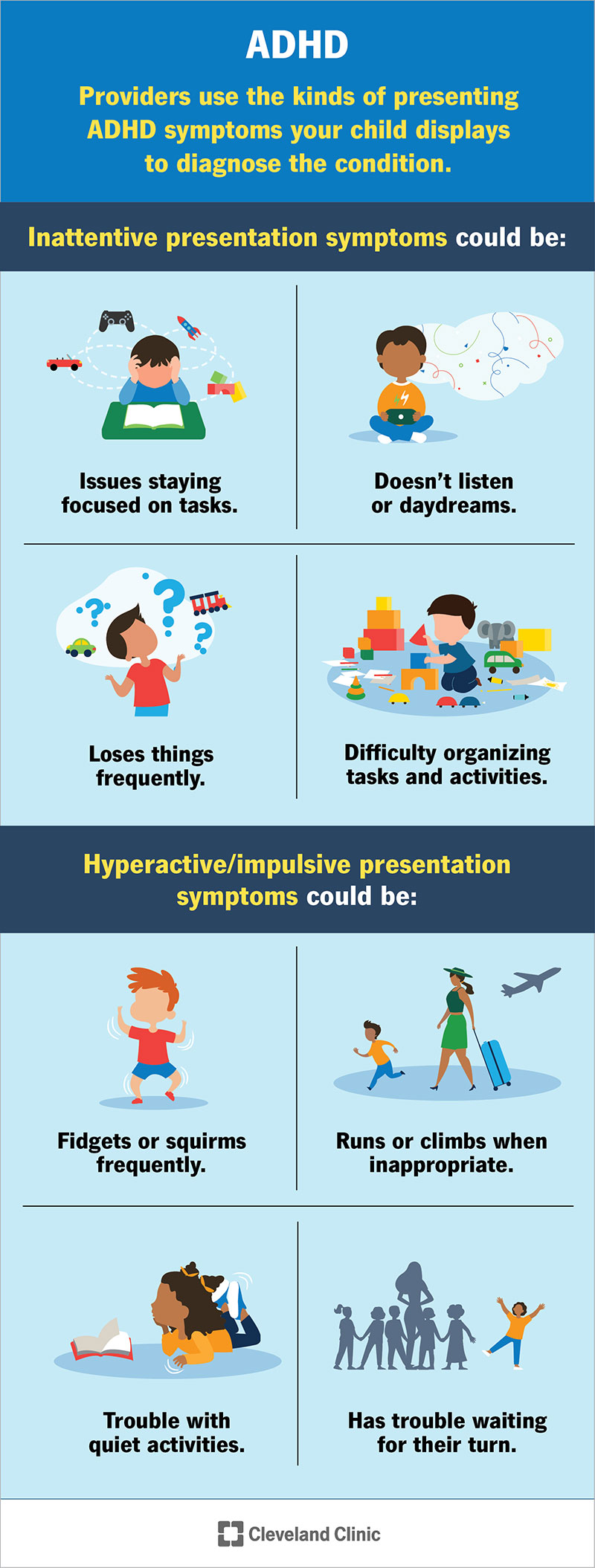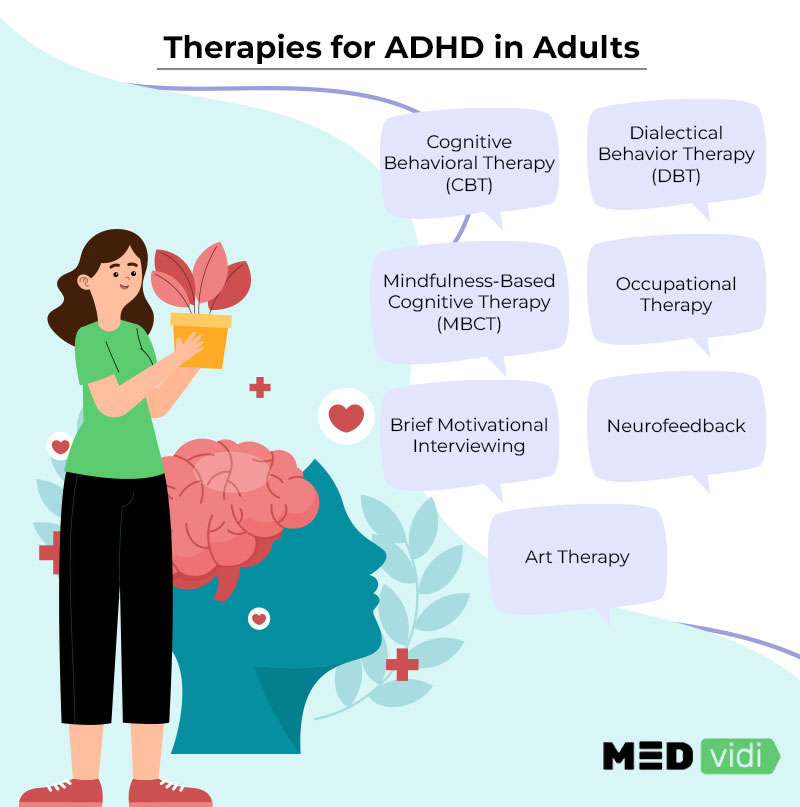Specialized ADHD Treatment for Personalized Care
Specialized ADHD Treatment for Personalized Care
Blog Article
The Advantages of Customized ADHD Treatment Plans for Better Results
The application of individualized ADHD treatment strategies has actually emerged as an essential method in boosting therapeutic end results for people affected by this problem (ADHD treatment). By recognizing the special symptoms of ADHD in each individual, these personalized interventions promote greater involvement and inspiration, inevitably leading to extra reliable coping approaches.
Comprehending ADHD Variability
Although Attention-Deficit/Hyperactivity Disorder (ADHD) is frequently viewed as a single condition, its symptoms can differ substantially amongst people. This irregularity is affected by an array of elements, consisting of age, gender, coexisting problems, and environmental contexts. For instance, kids with ADHD may show hyper actions, while adults may mostly battle with interest shortages. Gender distinctions also contribute, as men are more frequently diagnosed with ADHD and typically display much more obvious signs and symptoms, whereas women might present with less evident inattentiveness.
Moreover, people with ADHD may experience a spectrum of psychological and behavioral obstacles, such as stress and anxiety or oppositional defiance, that can make complex diagnosis and therapy. It is additionally worth noting that ADHD can provide in a different way across different social contexts, influencing exactly how signs and symptoms are acknowledged and attended to.
Secret Components of Customization
Personalized ADHD therapy plans are based in numerous crucial parts that guarantee reliable monitoring of the disorder. An extensive analysis is crucial, including standard ranking ranges, interviews, and behavioral observations. This complete evaluation enables clinicians to understand the individual's one-of-a-kind signs, toughness, and difficulties.
Second, the participation of numerous stakeholders, including parents, educators, and the person, adds to a holistic sight of the person's needs. Collaboration cultivates an encouraging atmosphere that can adapt to the person's context and way of living.
Third, therapy strategies should be adaptable and adaptable, permitting adjustments based on continuous responses and the person's evolving demands. This flexibility makes it possible for the assimilation of numerous healing methods, such as behavior interventions, psychoeducation, and medicine administration.
In addition, cultural and contextual aspects should be considered. Identifying the individual's history, values, and choices guarantees that the therapy is appropriate and considerate.
Last but not least, routine follow-ups and assessments are important to keep track of development and make necessary modifications. By focusing on these key parts, individualized ADHD therapy strategies can considerably improve the effectiveness of interventions, resulting in improved results for individuals with ADHD.
Enhanced Involvement and Motivation
To properly promote enhanced involvement and motivation in people with ADHD, it is vital to incorporate techniques that reverberate with their interests and toughness. Customized treatment plans that align with an individual's enthusiasms can cause boosted participation in healing activities, cultivating a feeling of more information possession and interest for the procedure.
Making use of interactive and innovative methods can additionally significantly enhance motivation. Including gamification aspects or real-world applications of abilities can make tasks much more appealing and relevant. This not just records interest but likewise reinforces discovering through enjoyable experiences.
In addition, setting possible and significant goals customized to the person can boost motivation. When people see their progression in the direction of personally significant goals, they are a lot more most likely to continue to be involved. Regular responses and recognition of success can further receive inspiration, producing a favorable feedback loop that encourages ongoing initiative.
Last but not least, promoting a supportive environment where individuals really feel understood and valued can considerably influence their interaction levels. When treatment plans are created collaboratively, integrating input from the person, they are more probable to feel purchased their journey, inevitably resulting in enhanced outcomes in managing ADHD.
Improved Coping Methods
Creating improved coping approaches is vital for people with ADHD, as it outfits them with efficient tools to browse day-to-day challenges. A personalized therapy official source strategy permits for the identification of certain coping mechanisms tailored to the individual's distinct requirements and scenarios - ADHD treatment. Techniques such as mindfulness, time administration skills, and organizational techniques can be integrated into day-to-day regimens, promoting a feeling of control and reducing stress and anxiety
Mindfulness techniques, including reflection and deep-breathing workouts, aid people with ADHD concentrate their attention and control their feelings. Time administration strategies, such as making use of timers or damaging tasks into smaller, convenient steps, can minimize sensations of bewilder. Additionally, business devices like planners and checklists can boost efficiency and accountability.
Lasting Favorable Results
Implementing customized ADHD therapy plans can lead to significant long-lasting favorable end results for individuals. These tailored techniques, which take into consideration one-of-a-kind signs and symptoms, preferences, and life conditions, help with much more effective monitoring of ADHD signs gradually. By concentrating on the details demands of the individual, these plans enhance adherence to treatment procedures and foster higher interaction in restorative tasks.

In addition, personalized therapy strategies can significantly decrease the threat of comorbid problems, such as anxiousness and depression, which are typically connected with ADHD. Early intervention and consistent assistance aid individuals develop durability and coping strategies, advertising total mental health.
Inevitably, the lasting positive results of individualized ADHD treatment prepares not only boost the lifestyle for people but also add to their total well-being and success in various life domains. This holistic strategy highlights the importance of personalized treatment in managing ADHD efficiently.
Conclusion

Report this page